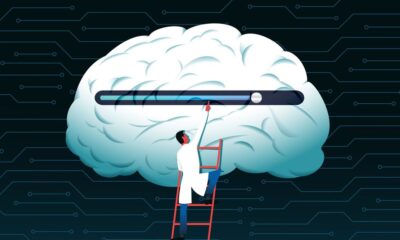Science
Historical Misbeliefs Highlight Need for Continued Learning

In a recent exploration of historical misconceptions, author and speaker Lisa Currie underscored the importance of evolving understanding in science and culture. While reflecting on past practices, Currie revealed that prior to the 20th century, it was common for doctors and scientists to conduct dissections on live animals, particularly dogs. This shocking reality stemmed from a widespread belief that animals did not experience pain, a notion that has since been debunked thanks to advances in animal rights advocacy.
Currie’s discussion highlights how societal beliefs can shift dramatically with new information. She pointed out that many ideas once accepted without question are now viewed as absurd. For example, during the mid-1800s, some medical professionals warned women against traveling on high-speed trains, believing that speeds exceeding 50 miles per hour could harm their health. This misguided belief illustrates how limited scientific understanding can lead to widespread misconceptions.
The author further emphasized the evolution of medical practices, such as the use of leeches to remove blood from the sick, based on the belief that illness was caused by an excess of blood. This practice predated crucial medical discoveries, including the development of x-rays and antibiotics like penicillin. Currie encourages readers to recognize that while some past beliefs may seem ludicrous today, they were often rooted in the prevailing lack of knowledge and understanding.
Challenging Absurdity Through Experience
Currie argued that the persistence of certain misconceptions in modern society demonstrates that ignorance can still prevail. Some individuals continue to hold onto outdated beliefs, such as the notion that the Earth is flat or that certain ethnic groups are inferior. She advocates for the importance of travel and cultural exchange as means to dismantle these outdated views.
By engaging with diverse cultures, individuals can foster a deeper understanding of the world and its inhabitants. Currie suggests that such experiences contribute to personal growth, allowing people to appreciate different cuisines, religions, and lifestyles. This exposure not only broadens perspectives but can also challenge the absurdity of deeply held misconceptions.
The Evolution of Language and Thought
In discussing the English language, Currie highlighted its rich tapestry woven from various cultures and languages. English is not a monolithic entity; rather, it is an amalgamation influenced by countless societies throughout history. This evolution reflects the ongoing interaction between different peoples and cultures, emphasizing that language development is a continuous process shaped by experience.
As Currie noted, the journey of understanding is ongoing. Just as past beliefs were often based on limited information, contemporary views can also be misguided. The challenge lies in remaining open to new ideas and experiences, which can ultimately foster a more informed and compassionate society.
In summary, Currie’s reflections serve as a reminder that learning is a lifelong pursuit. By embracing new information and engaging with diverse perspectives, society can continue to grow and challenge outdated beliefs, paving the way for a more enlightened future.
-

 Technology5 months ago
Technology5 months agoDiscover the Top 10 Calorie Counting Apps of 2025
-

 Technology3 weeks ago
Technology3 weeks agoOpenAI to Implement Age Verification for ChatGPT by December 2025
-

 Health3 months ago
Health3 months agoBella Hadid Shares Health Update After Treatment for Lyme Disease
-

 Health3 months ago
Health3 months agoAnalysts Project Stronger Growth for Apple’s iPhone 17 Lineup
-

 Health4 months ago
Health4 months agoErin Bates Shares Recovery Update Following Sepsis Complications
-

 Technology5 months ago
Technology5 months agoDiscover How to Reverse Image Search Using ChatGPT Effortlessly
-

 Technology3 months ago
Technology3 months agoElectric Moto Influencer Surronster Arrested in Tijuana
-

 Technology5 months ago
Technology5 months agoMeta Initiates $60B AI Data Center Expansion, Starting in Ohio
-

 Technology2 months ago
Technology2 months agoDiscover 2025’s Top GPUs for Exceptional 4K Gaming Performance
-

 Technology5 months ago
Technology5 months agoRecovering a Suspended TikTok Account: A Step-by-Step Guide
-

 Health5 months ago
Health5 months agoTested: Rab Firewall Mountain Jacket Survives Harsh Conditions
-

 Lifestyle5 months ago
Lifestyle5 months agoBelton Family Reunites After Daughter Survives Hill Country Floods





















